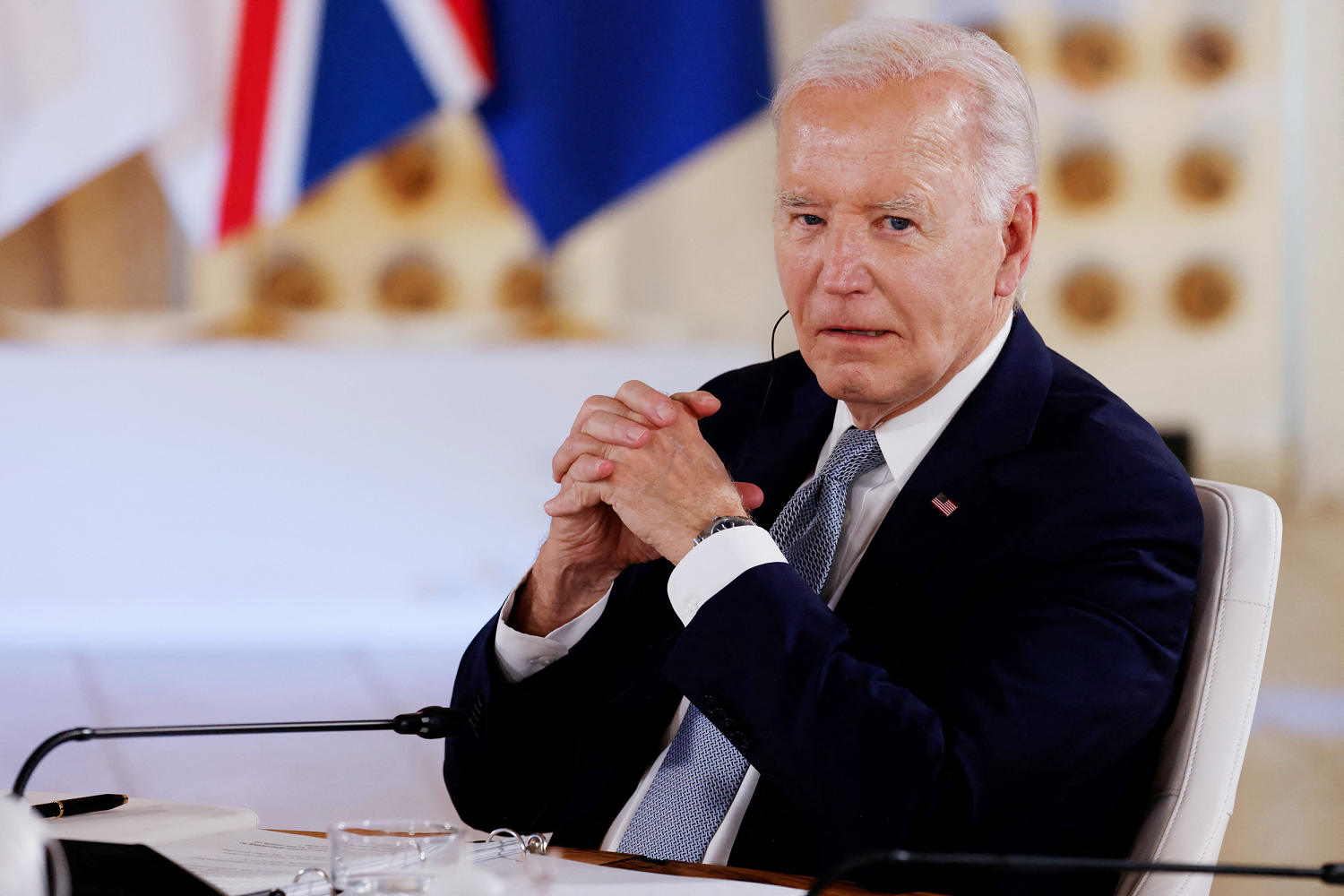G7 leaders reach deal to provide Ukraine a $50 billion loan backed by Russian assets


BARI, Italy — President Joe Biden and his counterparts from the wealthiest democratic nations reached a deal Thursday to give Ukraine a $50 billion loan this year backed by frozen Russian assets, signaling a sustained commitment to beat back Russia’s invasion, U.S. officials said.
As Ukraine struggles to preserve its independence amid Russia’s assault, the money will go toward military aid, humanitarian support and reconstruction of the country, a Biden administration official said in a press briefing.
The U.S. is prepared to commit the entire $50 billion if necessary, but expects other nations will step forward and share the risk, the official said. The loan will be secured by interest flowing from about $300 billion in frozen Russian assets.
“How are we going to get repaid? Russia pays,” the official said.
The deal was to be officially announced Thursday during a summit meeting of the Group of Seven (G7) nations, advanced industrial democracies including Germany, Japan, France, the United Kingdom, Canada and Italy.
“There was a shared recognition by every G7 member that the situation on the battlefield remains difficult and that if the war continues, Ukraine is still going to have a large financial need next year and beyond,” the official said, speaking on the condition of anonymity.
Negotiations on the effort have played out since Russia launched its invasion in 2022, but political uncertainty may have given the talks renewed urgency. Biden faces a tough re-election campaign, and if he loses to Republican Donald Trump in November, there are no assurances the next administration would favor any more money for Ukraine.
“This summit is our best chance to act collectively, to close the gap by making Russia pay, not our taxpayers,” the official added.
One of the participants in the summit, wearing his trademark green fatigues, is Ukrainian President Volodymyr Zelenskyy, who met privately with Biden in Paris last week during events surrounding the 80th anniversary of the D-Day landings. On that trip, Biden announced a separate $225 million weapons package for Ukraine.
The two leaders were scheduled to sign a joint security agreement Thursday cementing a partnership aimed at preserving Ukraine’s independence and preventing Russian forces from overrunning the country.
“This is a big deal. It’s a milestone in our partnership and a real marker of our commitment, not just this month or year but many years ahead to support Ukraine both in defending against Russian aggression and deterring future aggression so Ukraine can be a sovereign, viable thriving democracy,” White House national security adviser Jake Sullivan told reporters in a briefing.
Biden’s stay in Italy is short: He arrived late Wednesday and will depart Friday night. His schedule is packed with meetings that, apart from Ukraine, will focus on worldwide infrastructure projects and what Western officials say is China’s practice of flooding markets with goods.
He is expected to hold a news conference Thursday night.
A personal highlight of Biden’s visit will be a meeting with Pope Francis, who is also attending the summit and will discuss the risks posed by artificial intelligence. A practicing Catholic, Biden met with Pope Francis in 2021 in Rome and emerged to say the pontiff had told him he should receive communion, despite conservative American bishops who had said Biden’s pro-abortion rights stance should disqualify him from the sacrament.
Biden’s second European trip this month comes at a tumultuous time, politically and personally. The day before the president’s departure, his son Hunter Biden was found guilty on three felony gun charges tied to his drug use.
European elections produced gains by the far right this week, prompting French President Emmanuel Macron, a Biden ally, to call for snap elections in his country. Meanwhile, Biden is locked in a tight race back home that could swing U.S. foreign policy in a more isolationist direction if Trump wins.
As president, Trump often sparred with G7 allies, and if he returns, some of his former aides believe he may pull the U.S. out of the NATO military defense alliance designed as a bulwark against Russia.







